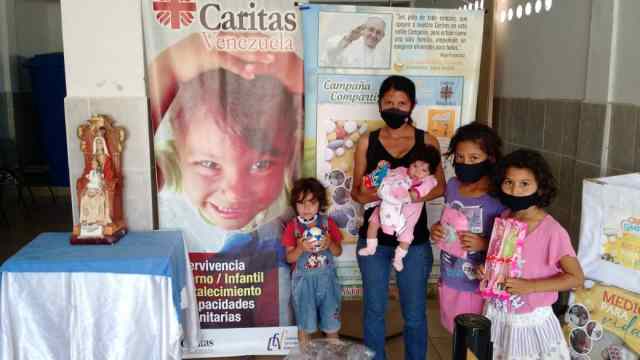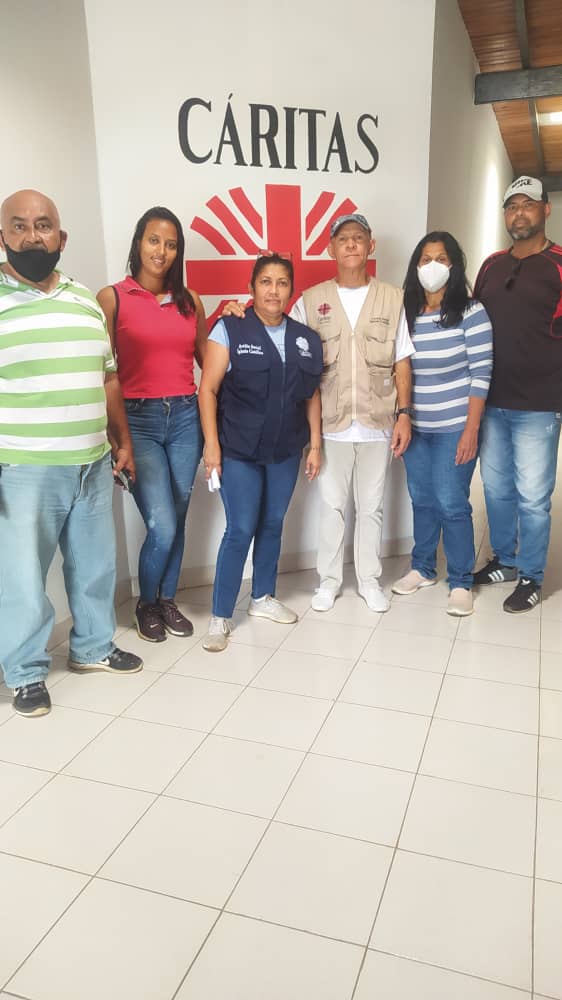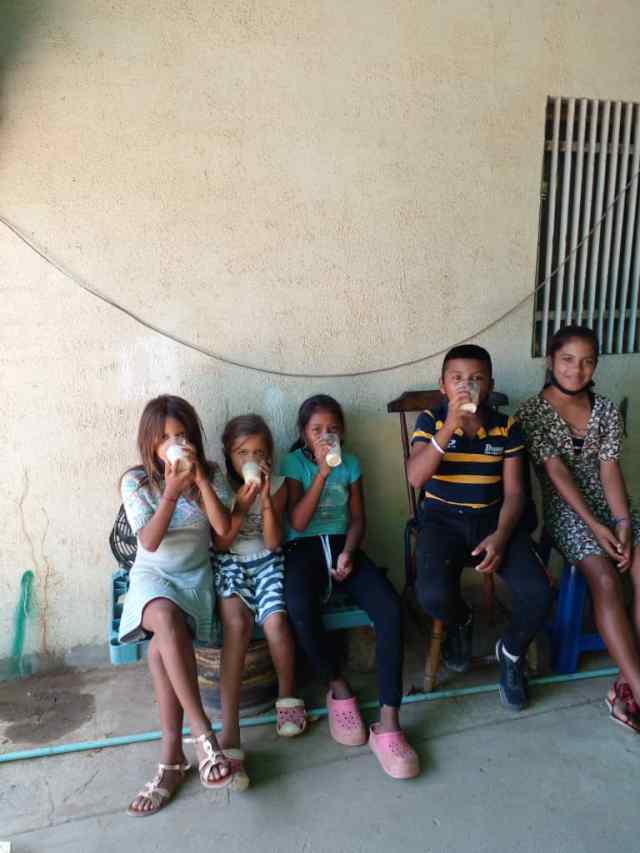
Cáritas de Venezuela has been carrying out the “Program Samán” (Saman program) for the last five years in the Paraguaná Peninsula in Falcón State, which seeks to recuperate children, pregnant and lactating women with malnutrition. This year the numbers of malnutrition cases have tripled just in two centers of the five that they monitor.
By Correspondent La Patilla
Migdalia Colina, director of “Cáritas Punto Fijo”, expressed that the numbers of malnourished children and malnourished pregnant adolescents are worrying. This is just after the first monitoring that has been done in only two of the five centers that they have in the Paraguaná Peninsula and those that have registered up to February 17th.
December 2022 closed with 17 children who show signs of malnutrition and who were recruited at the main headquarters of Cáritas Punto Fijo, during February of this year 37 have been registered in the same place.
In the case of the “Punta Cardón” parish center in the Carirubana Municipality, December closed with 15 children and this year 61 new cases are already in the seedbed (starting group). Three other centers that are located in the Falcón and Los Taques municipalities of the Paraguaná Peninsula have not yet been assessed, however in general 2022 ended with 131 cases.
“Proyecto Samán” Delivers Hope To Many

The Samán project is a plan of the Catholic Church that is carried out throughout the country with the support of Caritas. It began five years ago in the Paraguaná Peninsula and has gradually spread to other rural regions of the peninsula.
This plan mainly serves children from birth to four years and 10 months, the time in which their organs and senses develop, so nutrition is paramount. Children are measured and weighted and according to international scales their degree of malnutrition is determined. The scale ranges from 0 to -3, the latter being the most serious condition.
They are checked weekly by pediatricians and are given nutritional bars donated by the United Nations Children’s Fund (UNICEF), as well as gruel and bags of food. “These nutrition bars are the same taken to war zones, we never thought that this program would reach Falcón to help save lives, but it did, and every child who complies with the diet recovers in no time. This does not mean that we leave aside those over four years of age, because we also help them, the same as mothers and pregnant women,” said Colina.
During 2022, 40 children were registered in stage 0, 40 in -1 and in the most serious stages that are -2 and -3 there were 36, of these 15 left the seedbed. “The most difficult thing is when we work with families and we achieve get them out of malnutrition, but after a few months they return because they have no way to feed their children and the low food intake puts them at risk again. There are children who do not return, as there are others who have other pathologies and that prevents them from gaining weight, that is why they work with specialists,” said Colina.
“Campaña Compartir”: donate to help

From this Ash Wednesday on, celebrated on February 22nd and until Palm Sunday, the church begins the “Campaña Compartir” (Share Campaign) number 43, which this year is called “Let’s reduce the risk of disaster together” and which seeks to make government aid and businessmen to design an emergency plan to assist communities affected by natural disasters.
This aid also seeks to have supplies for the families of the Saman Project and also to bring medicines to the four medicine banks that are in the three municipalities of Paraguaná and that seeks to help those most in need. “Pope Francis has been saying it since 2015, we have to learn to raise awareness, be good citizens and help those most in need. Do not turn a blind eye to the needs of others. Also that the common home must be taken care of, not destroyed but rather work towards construction,” he concluded.
Those who wish to participate in these projects carried out by the Catholic Church through Cáritas Punto Fijo, should go to the headquarters located on Calle Páez de Punto Fijo (Páez Street in Punto Fijo), in front of the first house (oldest house, a local historic landmark) in the city.

